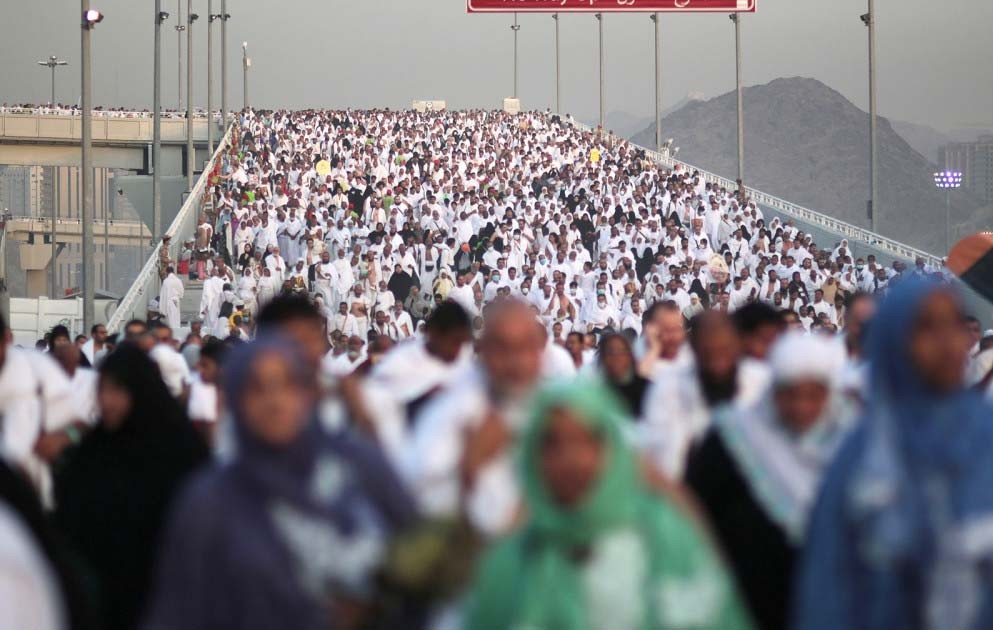

Dear All,
Islamic history provides many accounts of the egalitarian nature of the early days of the religion, an idea later articulated by the great poet of the subcontinent Mohammad Iqbal in verses.
Referring to Mahmud Ghazni (either a great 11th century hero or a compulsive marauder -- depending on your view) and his Turkish/Georgian slave Malik Ayaz, Iqbal makes the moment when both stand shoulder to shoulder in a prayer congregation, equal before their creator, both poignant and powerful: "ek hi suff mein khare ho gaye Mahmud-o-Ayaz, na koi banda raha aur no koi banda nawaz". Not just does Iqbal create the image of the powerful Ghaznavid ruler and his slave standing as equal, he explicitly drives home his point by saying that all believers were levelled in their shared faith whether rich or poor, ruler or ruled: "banda-o-sahib-o-muhtaaj-o-ghani ek huay, teri sarkar mein pahunche tau sabhi ek hue".
In the subcontinent, the remnants of the idea of social equality can also be glimpsed each Eid when males greet each other in the traditional eid milan manner regardless of class or status. But any assertion that Islam is in principle an egalitarian religion has been dealt a severe blow by the way the pilgrimage of Haj is now conducted. What was once, in essence, a congregation of believers (male or female, rich or poor, young or old) united in their faith and equal before their Creator is now a terribly divided, unequal and highly commercialised enterprise.
Why were those who ‘worship at the shrine of Mammon’ (an ancient deity of greed and material wealth) allowed into the Ka’aba? Why were luxury hotels and restaurants allowed in the area and why was the idea of five-star Haj allowed? The way in which Haj is now conducted is highly unequal. Rich people buy themselves comfortable food and accommodation, poor people have to rough it out.
Powerful people get VIP protocols and special security even if that means causing a stampede and killing a few pilgrims (the stampede at Mina this year claimed over 1000 lives and was allegedly caused by a Saudi Prince’s motorcade and security). Where is the equality in this? Why have we allowed the pilgrimage to be about division rather than unity? Why have we allowed it to be guided by commercialism and wealth and elitist arrogance?
Saudi Arabia, where the Holy places are located, is not a poor country. It is an oil power with an indestructible Haj economy. Why then did it need to allow the pilgrimage to become so commercialised? Why didn’t it use its substantial resources to have a good standard of facilities -- for everybody? And why have the world’s Muslims been so accepting of a situation which completely undermines one of the basic tenets of a faith that was initially so welcomed because of its inclusive, broadly non-discriminatory ethos.
The reaction of Haj authorities to nearly all of the fatal large scale accidents that have occurred during Haj has been to blame the victims: portray them as ignorant, undisciplined creatures, as if their low economic status somehow confirmed their culpability.
Haj has been made a mirror of the unequal society we inhabit, a reflection of the world’s acceptance of the essentially non-compassionate nature of private and capitalist enterprise.
Is it even possible to steer the organisation of Haj away from non-egalitarian, wealth-driven practices? Even if it might be, there seems no real will to make this happen.
But if we could go back in time, then certainly setting up excellent facilities for all pilgrims would be a consideration with total disregard for princes, luxury hotels or building contractors…
Best wishes